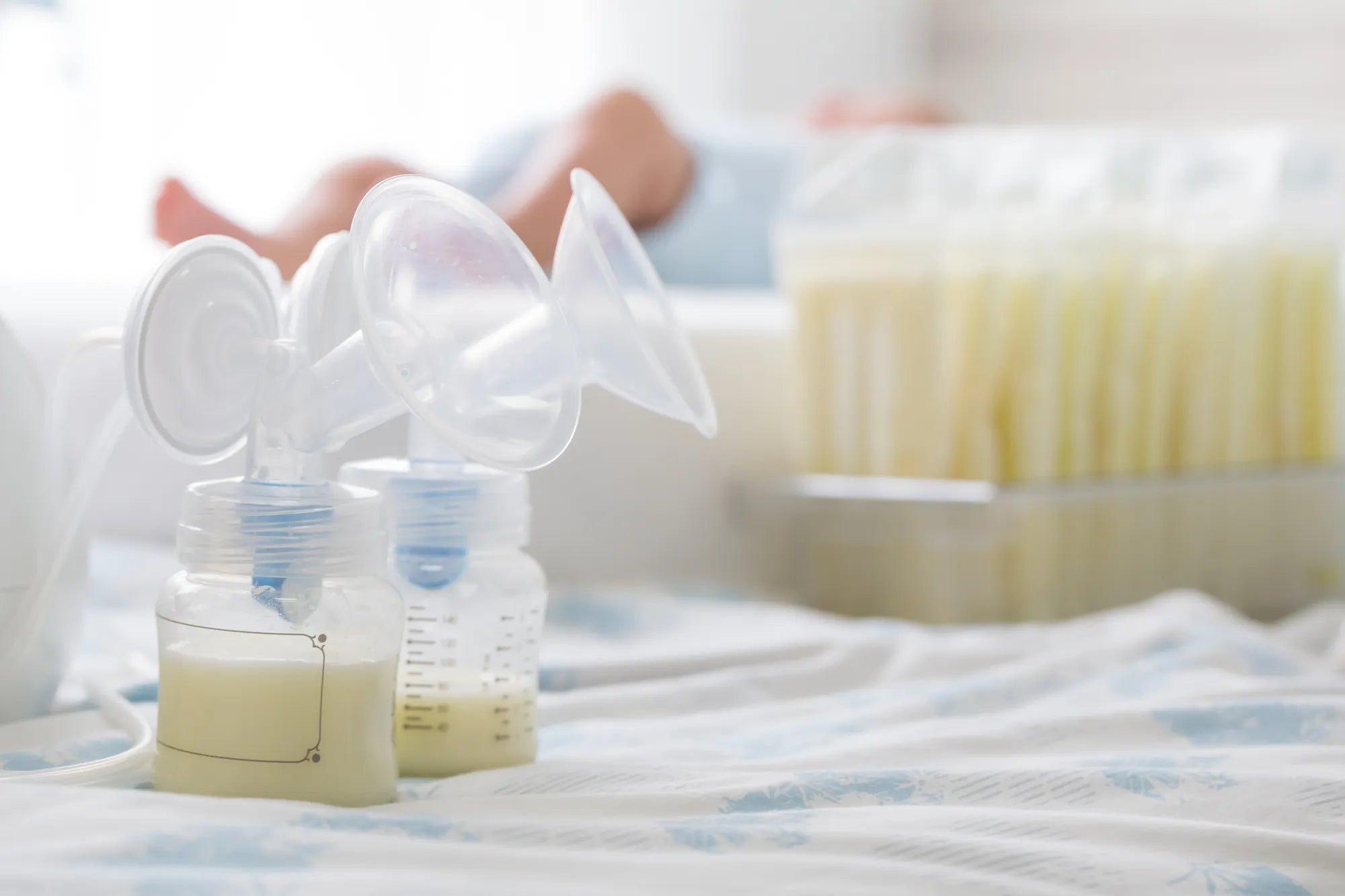Home
Pregnancy, Breastfeeding, and Pumping: The Ultimate Guide for Moms
Do You Lose Weight Breast Pumping? Exploring the Connection

Do You Lose Weight Breast Pumping? Exploring the Connection
Breast pumping is a common practice among new mothers, but its potential impact on weight loss is often overlooked. Many women wonder if the act of breast pumping can help shed postpartum pounds. While the primary purpose of breast pumping is to provide nourishment for infants, it may also have secondary benefits for weight management. This article explores the connection between breast pumping and weight loss, offering insights into the science behind it and practical advice for those looking to manage their weight postpartum.
Understanding the Caloric Demand of Breastfeeding
Breastfeeding, including breast pumping, requires a significant amount of energy. The body burns calories to produce milk, which can contribute to weight loss over time. On average, breastfeeding mothers burn an additional 300 to 500 calories per day. This caloric expenditure can help create a calorie deficit, which is essential for weight loss. However, the extent of weight loss varies depending on factors such as diet, physical activity, and individual metabolism.
How Breast Pumping Affects Weight Loss
Breast pumping mimics the natural process of breastfeeding, stimulating milk production and increasing caloric expenditure. While breast pumping alone may not lead to dramatic weight loss, it can be a helpful component of a broader weight management strategy. Regular breast pumping sessions can help maintain milk supply and ensure that the body continues to burn calories at a higher rate. Additionally, breast pumping can provide flexibility for mothers who may not be able to breastfeed directly, allowing them to still benefit from the caloric burn associated with milk production.
The Role of Hormones in Weight Loss
Breastfeeding and breast pumping trigger the release of hormones such as oxytocin and prolactin. These hormones not only support milk production but also play a role in postpartum weight loss. Oxytocin helps the uterus return to its pre-pregnancy size, while prolactin can suppress appetite and promote fat mobilization. These hormonal changes can contribute to gradual weight loss over time. However, it's important to note that hormonal responses vary among individuals, and weight loss may not be immediate or consistent for everyone.
Balancing Nutrition and Breast Pumping
While breast pumping can aid in weight loss, it's crucial to maintain a balanced diet to support both milk production and overall health. Restricting calories too severely can negatively impact milk supply and lead to nutrient deficiencies. Instead, focus on consuming nutrient-dense foods that provide the energy needed for milk production while supporting weight loss goals. Incorporating lean proteins, whole grains, fruits, and vegetables into your diet can help you feel satisfied and nourished while managing your weight.
Incorporating Physical Activity
Physical activity is another important factor in postpartum weight loss. While breast pumping can contribute to caloric expenditure, combining it with regular exercise can enhance weight loss results. Low-impact activities such as walking, yoga, or swimming can be particularly beneficial for new mothers. It's important to listen to your body and avoid overexertion, especially in the early postpartum period. Gradually increasing physical activity levels can help you achieve your weight loss goals while supporting overall well-being.
Managing Expectations
It's essential to approach postpartum weight loss with realistic expectations. While breast pumping can contribute to weight loss, it is not a guaranteed or rapid solution. Weight loss during the postpartum period is a gradual process that requires patience and consistency. Factors such as genetics, sleep patterns, and stress levels can also influence weight loss outcomes. Focusing on overall health and well-being, rather than solely on weight loss, can help you maintain a positive mindset and achieve sustainable results.
Practical Tips for Weight Loss While Breast Pumping
If you're looking to lose weight while breast pumping, consider the following tips:
- Stay hydrated: Drinking plenty of water supports milk production and can help control hunger.
- Eat regular meals: Skipping meals can lead to overeating later in the day. Aim for balanced meals and snacks throughout the day.
- Monitor portion sizes: Pay attention to portion sizes to avoid consuming excess calories.
- Get adequate sleep: Sleep deprivation can disrupt hormones that regulate hunger and metabolism, making weight loss more challenging.
- Seek support: Joining a support group or working with a healthcare professional can provide guidance and encouragement on your weight loss journey.
Potential Challenges and Considerations
While breast pumping can support weight loss, there are potential challenges to be aware of. Some women may experience increased hunger due to the caloric demands of milk production, making it difficult to maintain a calorie deficit. Additionally, the time and effort required for breast pumping can be demanding, leaving little energy for other weight loss activities. It's important to prioritize self-care and seek support when needed to navigate these challenges effectively.
Long-Term Benefits of Breast Pumping
Beyond weight loss, breast pumping offers numerous long-term benefits for both mothers and infants. It provides a convenient way to store and feed breast milk, allowing mothers to maintain their milk supply even when they are not physically present. Breast milk is rich in nutrients and antibodies that support infant health and development. Additionally, breast pumping can help mothers feel more in control of their postpartum journey, contributing to overall mental and emotional well-being.
Breast pumping may not be a magic solution for weight loss, but it can be a valuable tool in your postpartum journey. By understanding the connection between breast pumping and weight loss, you can make informed decisions that support both your health and your baby's needs. Remember to approach weight loss with patience and self-compassion, focusing on overall well-being rather than quick fixes. With the right balance of nutrition, physical activity, and self-care, you can achieve your weight loss goals while providing the best possible start for your little one.
Share

